Norway’s clout in financial markets far outweighs its economy, which is about a 10th the size of Germany’s.

The central bank’s $1 trillion investment fund plows the Nordic nation’s oil income into public securities and has become the biggest of its kind, owning about 1.4 percent of global stocks. Yngve Slyngstad, who grew up in Asker just outside Oslo and received multiple graduate degrees before devoting himself to finance, has been chief executive officer of Norges Bank Investment Management since 2008. The 56-year-old spoke to Bloomberg Markets about what makes a good money manager, how he learns about China’s economy, his concerns regarding information monopolies, and why all investing is active. He also explains his strategy for private equity and real estate and why his fund’s potential divestment from oil company stocks has nothing to do with climate change concerns. While the fund now aims to be 70 percent in equities, he foresees that increasing in the future. “With the larger funds you have a larger buffer,” he says. “We have a higher risk tolerance.”
BLOOMBERG MARKETS: When people look at your CV, one of the things that pops out is that you have four degrees—in politics, economics, law, and business. Why did you choose to take all those degrees when normal people make do with one or two, or maybe even none?
YNGVE SLYNGSTAD: Yes, and the best part of it is that most of my studies were actually in philosophy, and I never put that on my CV—that I have a degree in philosophy—at all. Why did I do all of these degrees? I would simply say that’s just a reflection of curiosity, a genuine desire to learn, and to read a lot of books. I don’t think you necessarily need to narrow down your profession, definitely not in investing. Investing is really something that is broad. It’s all about the future, so having an open mind probably was the most important thing for me.
هذه القصة مأخوذة من طبعة February - March 2019 من Bloomberg Markets.
ابدأ النسخة التجريبية المجانية من Magzter GOLD لمدة 7 أيام للوصول إلى آلاف القصص المتميزة المنسقة وأكثر من 9,000 مجلة وصحيفة.
بالفعل مشترك ? تسجيل الدخول
هذه القصة مأخوذة من طبعة February - March 2019 من Bloomberg Markets.
ابدأ النسخة التجريبية المجانية من Magzter GOLD لمدة 7 أيام للوصول إلى آلاف القصص المتميزة المنسقة وأكثر من 9,000 مجلة وصحيفة.
بالفعل مشترك? تسجيل الدخول
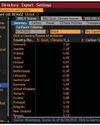
See Which Countries Are Falling Behind On Climate Change
Under the Paris Agreement, 190 countries and the European Union pledged to take steps to hold the global temperature rise to less than 2C (3.6F) from preindustrial levels—and preferably 1.5C.
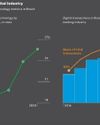
Billionaires Vie for the Future of Brazilian Finance
An escalating battle between two billionaires is upending the financial community in São Paulo, Latin America’s wealthiest city.
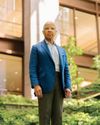
Ford Foundation's Darren Walker: ‘We Have to Get Uncomfortable'
DARREN WALKER, 62, disrupted his Wall Street life more than 25 years ago when he left what is now UBS Group AG to volunteer at a school and eventually pursue a career in community development and philanthropy. Since 2013 he’s been at the pinnacle of the philanthropic world as president of the Ford Foundation, created by the family of automaker Henry Ford during the Great Depression to advance human welfare.

Fueling the Ener Transition
I MAY BE BIASED, but some of the most important research and data on the Bloomberg terminal lies in one of its lesser-known functions: {BNEF }

Dig Into Analysts' Estimates for Disruptive Companies
THE PANDEMIC ERA generated a whole wave of disruptive companies as it accelerated the introduction of new products and services in areas including artificial intelligence, digitization, electronic payments, online meeting platforms, and virtual currencies.
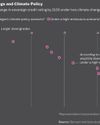
Climate Risks Come for Sovereign Credit
FOR YEARS climate scientists have warned about the ferocious wildfires and hurricanes that are now overwhelming many communities. Today alarms are ringing about a related financial danger: risks lurking within government bonds, the biggest part of the global debt market.

Responsible-Investing Pioneer Lydenberg Says ESG Needs An Upgrade
STEVE LYDENBERG’S passion for social change was inspired by anti-Vietnam War demonstrations, consumer boycotts, and the movement to divest from apartheid South Africa. But he didn’t take to the streets. Instead, Lydenberg turned to the world of finance to help catalyze societal change.

Engine No. 1's Grancio: ‘People Will Appreciate an Economic Argument'
ENGINE NO. 1 sent shock waves across corporate America in May when the fledgling investment firm won a boardroom battle with Exxon Mobil Corp., securing three seats on the oil and gas giant’s board after purchasing only about $40 million of its stock.
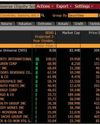
Find Out Which Companies May Ramp Up Payouts After Covid
AS THE PANDEMIC DISRUPTED business last year, many companies cut or suspended dividends. Which will boost their payouts when economies pick up again?
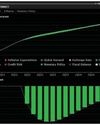
Get Into the Minds of Central Bankers as They Navigate Shocks
HAVE YOU EVER WONDERED how central bankers forecast the impact of shocks on the economy?